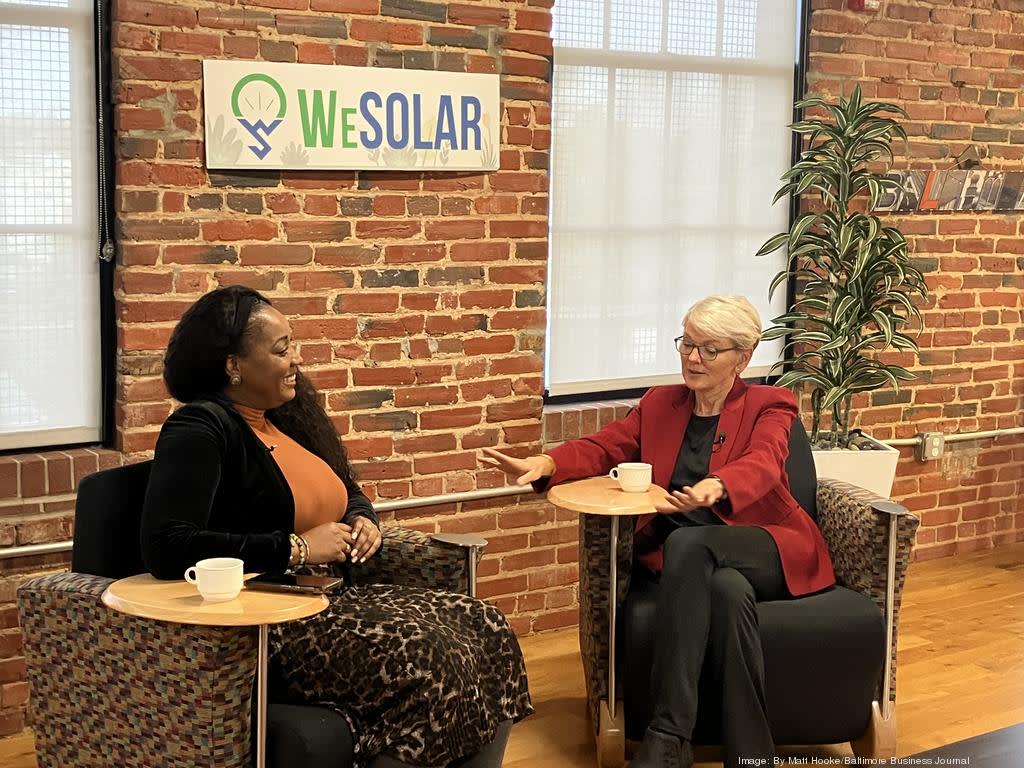Inflation Reduction Act Boosts Solar in Maryland, Featuring Kristal Hansley and U.S. Energy Secretary Jennifer Granholm

The Inflation Reduction Act (IRA) has ignited a new era of renewable energy development across the United States, and Maryland is no exception. A recent Baltimore Business Journal article highlights how the state’s solar industry is set to expand rapidly, thanks to the historic investments and tax incentives provided by the IRA. At the forefront of this movement is Kristal Hansley, CEO of WeSolar, whose work in bringing community solar to underserved communities is gaining even more momentum with the passing of the IRA.
The IRA, passed in 2022, includes billions of dollars in federal funding to support clean energy projects and reduce greenhouse gas emissions. This legislation offers incentives such as extended solar tax credits, making solar installations more affordable for homeowners, businesses, and community projects. Maryland is well-positioned to benefit from these incentives, as the state has already been a leader in setting ambitious goals for clean energy adoption and carbon emissions reduction.
For entrepreneurs like Hansley, the IRA represents a major step forward in addressing the energy inequities plaguing underserved communities. As the first Black woman to lead a community solar company, Hansley has made it her mission to ensure that low- and moderate-income families can participate in the solar revolution. With community solar, residents who may not have the option to install solar panels on their homes—due to cost or space constraints—can still access the benefits of clean energy by subscribing to shared solar farms.
The passage of the IRA offers a significant boost to Hansley’s efforts. The legislation extends the solar investment tax credit (ITC), which reduces the cost of solar installations by 30% and provides additional incentives for projects that serve low-income households and disadvantaged communities. For WeSolar, this means even greater potential to bring affordable solar energy to communities historically excluded from the clean energy transition.
“Thanks to the Inflation Reduction Act, we are able to accelerate our mission of making solar energy accessible to everyone,” Hansley said in an interview with the Baltimore Business Journal. “This legislation opens the door for more community solar projects, allowing us to reduce energy costs for families who need it the most.”
Maryland’s clean energy sector is expected to see significant growth in the coming years, with the IRA providing the financial support necessary to scale solar development. The law includes provisions that incentivize solar projects in low-income areas, creating opportunities for companies like WeSolar to expand their footprint and serve a wider range of customers.
The IRA's broader impact on Maryland’s solar industry is already being felt. As the article notes, Maryland is projected to add thousands of new solar jobs in the next decade, thanks partly to the federal funding and tax credits made available through the IRA. This influx of jobs will boost the state’s economy and help ensure a just transition to clean energy by creating employment opportunities in traditionally left-behind communities.
Hansley’s work with WeSolar continues to demonstrate how solar power can serve as both an economic driver and a tool for environmental justice. By leveraging the benefits of the IRA, WeSolar is poised to make even greater strides in reducing energy costs and creating a more equitable energy future for all.
For more insights into how the Inflation Reduction Act is transforming Maryland’s solar industry and empowering leaders like Kristal Hansley, read the full article in the Baltimore Business Journal.
